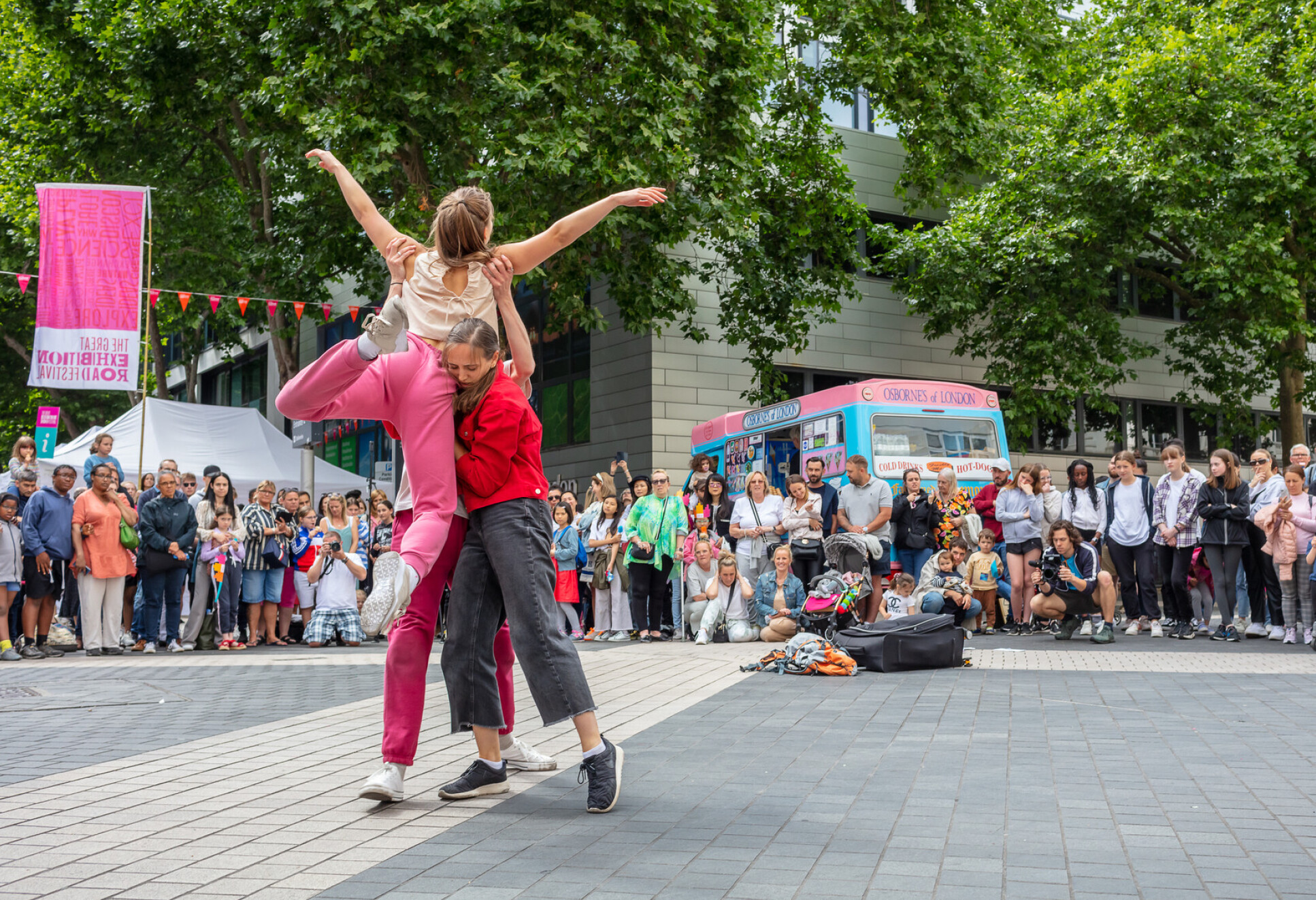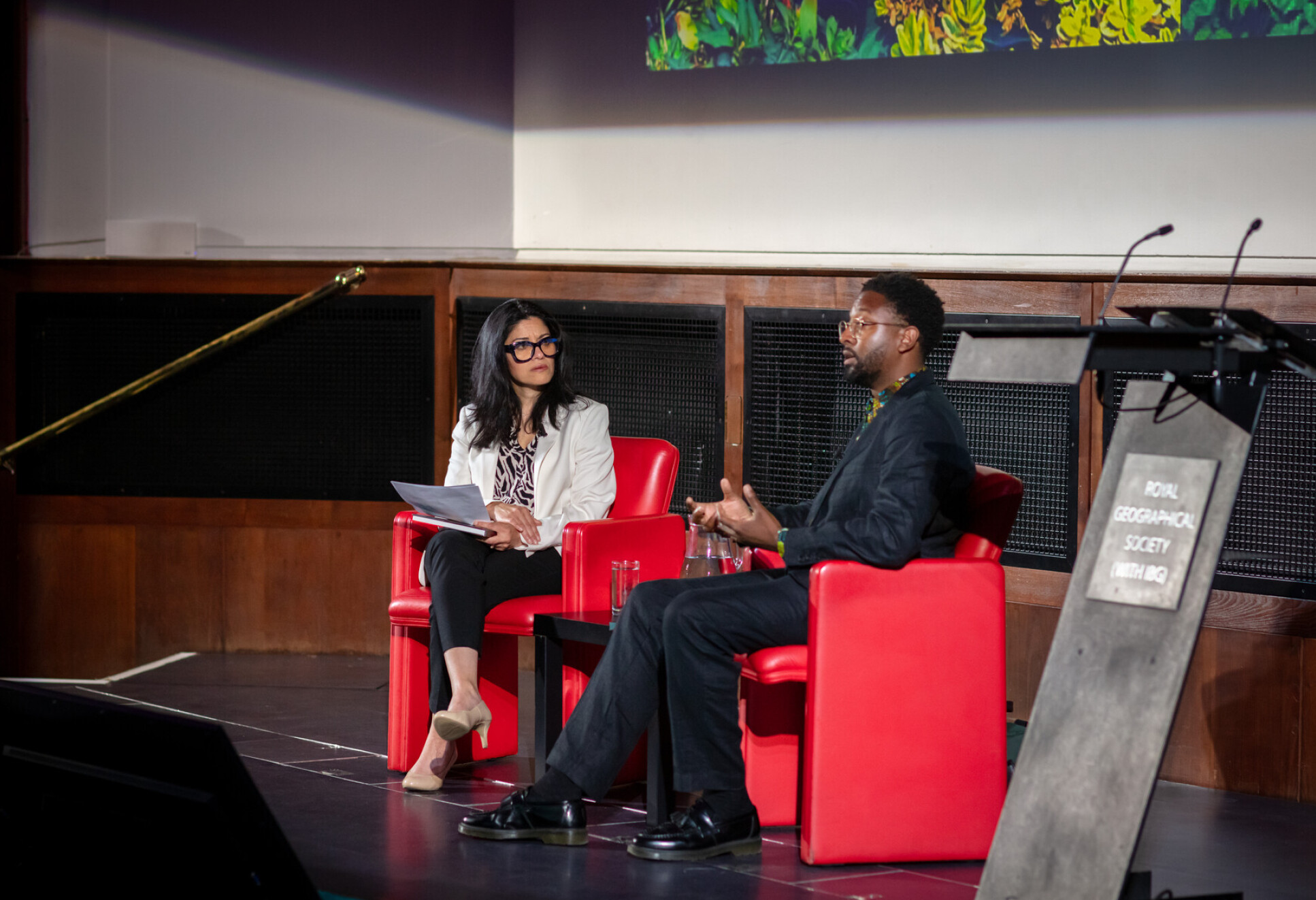Countdown begins to the Great Exhibition Road Festival
by Nisha Emich

Imperial College London’s South Kensington campus and surrounding spaces to welcome thousands of visitors to the Great Exhibition Road Festival!
Later this month, on 15-16 June, the annual Festival returns, bursting with vibrant activities in celebration of the ways that science and the arts can help people, communities, and the planet flourish.
Led by Imperial, alongside neighbouring institutions like the Natural History Museum, V&A, Science Museum, Royal College of Music and Royal Albert Hall, the Festival is a fantastic weekend full of inspiring talks, creative workshops, scientific demonstrations, drop-in activities, and lively performances.
With dedicated Festival Zones for adults, young people and families, there are a range of events for any age group.
Sharing Imperial's research
Research from across Imperial will take centre stage as staff and students across departments share the impact of their work in helping people and the planet flourish, while inspiring the next generation of scientists, doctors, and engineers.
 Imperial’s Energy Futures Lab, for example, will be running Wattown's Wonderful Windmill Workshop where you can interact with a model city’s wind turbines and solar panels to learn how we can use energy storage to power towns of the near future (while also decorating your own energy converting turbine).
Imperial’s Energy Futures Lab, for example, will be running Wattown's Wonderful Windmill Workshop where you can interact with a model city’s wind turbines and solar panels to learn how we can use energy storage to power towns of the near future (while also decorating your own energy converting turbine).
Uncover how our brain cells communicate with one another while creating artwork based on brain synapse scans with the Department of Brain Sciences, drive a Mars rover-style robot programmed by the Women in Computing team, join scientists from Imperial’s musculoskeletal lab to try out a VR programme used by doctors training to become surgeons, play games teaching you about the degradability of plastics with the Department of Chemistry, and dive into sustainable food choices (with samples!) alongside the Grantham Institute, Centre for Environmental Policy, and School of Public Health – and much, much more!

Book free tickets in advance!
You can book tickets for some of our most popular events in advance now – including within the festival’s two talk series: Flourishing Futures and Art of Science.
Hosted in the Sir Alexander Flemming Building, the Art of Science talks explore a range of people, projects, and ideas that fuse science with the arts, including:
- AI in Pop Culture – trace the history of ‘intelligent machines’ in art and literature at this talk exploring how different cultural landscapes influence how people envisage an AI future.
- Future Sounds: Classical Instruments Meet Digital Tech – experience a unique performance by Royal College of Music students using newly invented and augmented instruments developed by Imperial College London.
- The Story of Time with Professor Jim Al-Khalili – join the broadcaster and professor of physics to look at how we can use our current understanding of the laws of physics to tell a new story about the nature and behaviour of time.

Taking place in the V&A’s Lydia and Manfried Gorvy Lecture Theatre, join experts discussing what it takes for individuals, communities or the natural world to thrive at the Flourishing Futures talks:
- Will Humanity Thrive on Other Planets? – Britain’s first astronaut Dr Helen Sharman hosts a discussion about the Earth technologies that could help us flourish beyond our home planet.
- Humans 2.0: Robotically Augmented People – consider how innovations in robotic devices, exoskeletons, and wearable tech can impact disabled people’s lives as well as support humans more widely to inhabit and work in extreme conditions.
- Tropical Architecture for a Warming World – learn about the architectural revolution in Ghana and India that could inspire how cities adapt across our warming world.
Stay in the loop...
The Great Exhibition Road Festival will be running across 15-16 June 2024 from 12pm each day in venues around South Kensington. Register now for the latest updates and advance notice of ticket releases for popular events – or just arrive on the day!
Visit greatexhibitionroadfestival.co.uk to discover what’s on, plan your routes by getting familiar with the festival locations, and start building your appetite by checking out our amazing food and drink traders.
Article text (excluding photos or graphics) © Imperial College London.
Photos and graphics subject to third party copyright used with permission or © Imperial College London.
Reporter
Nisha Emich
Office of the Provost